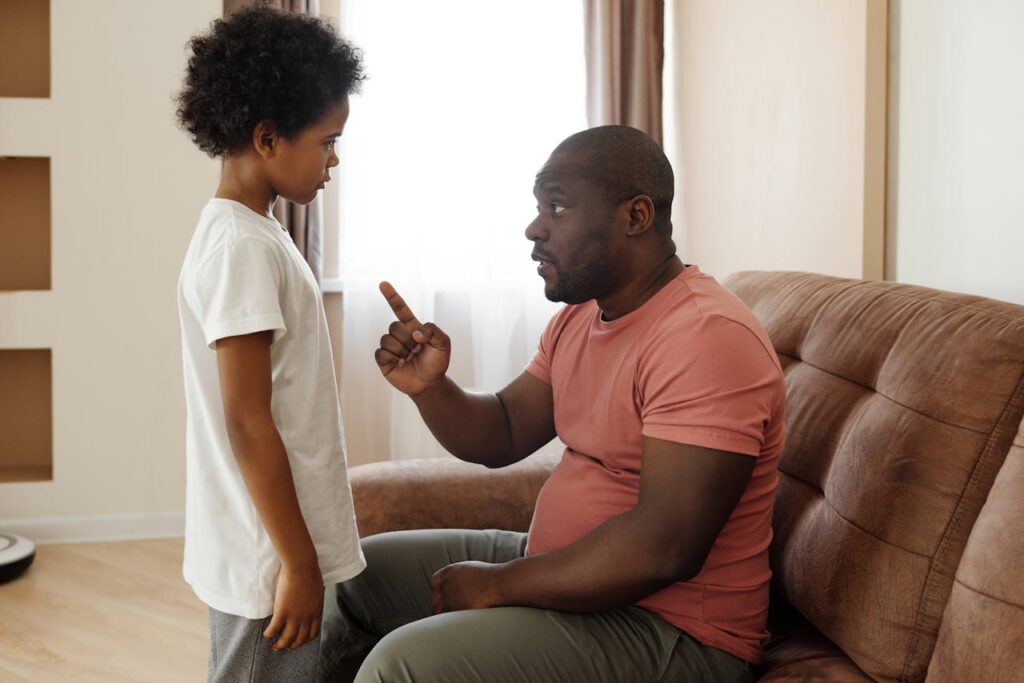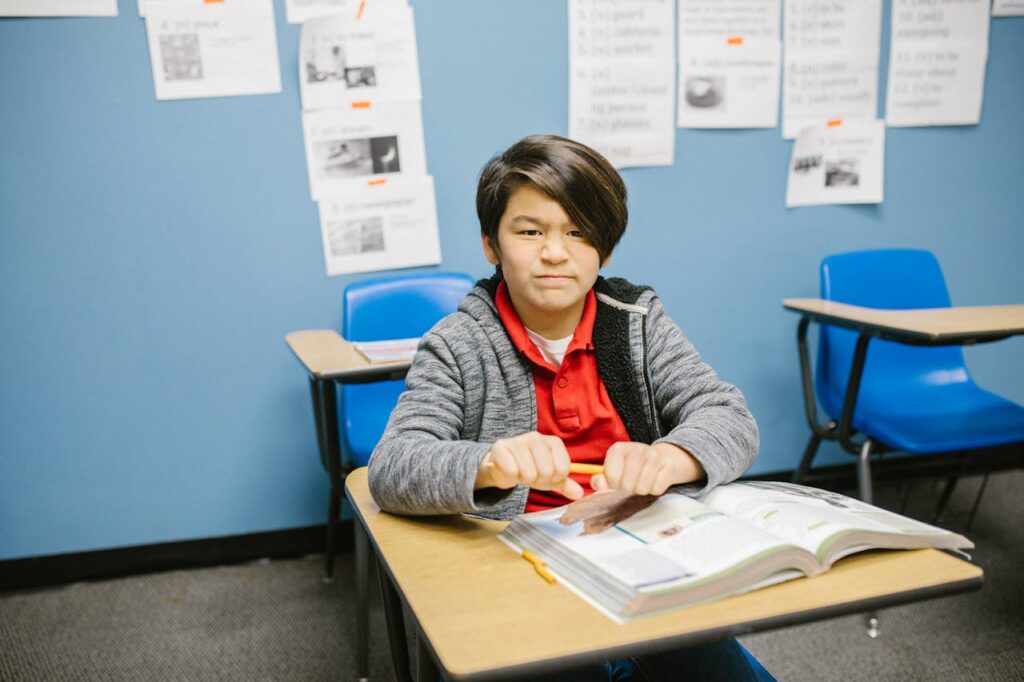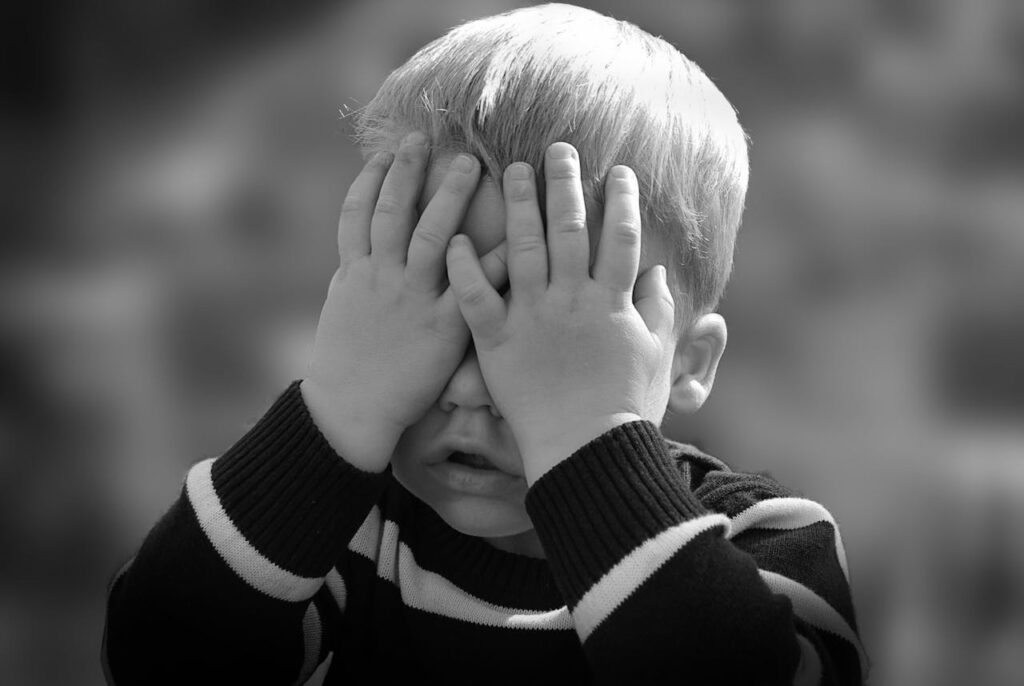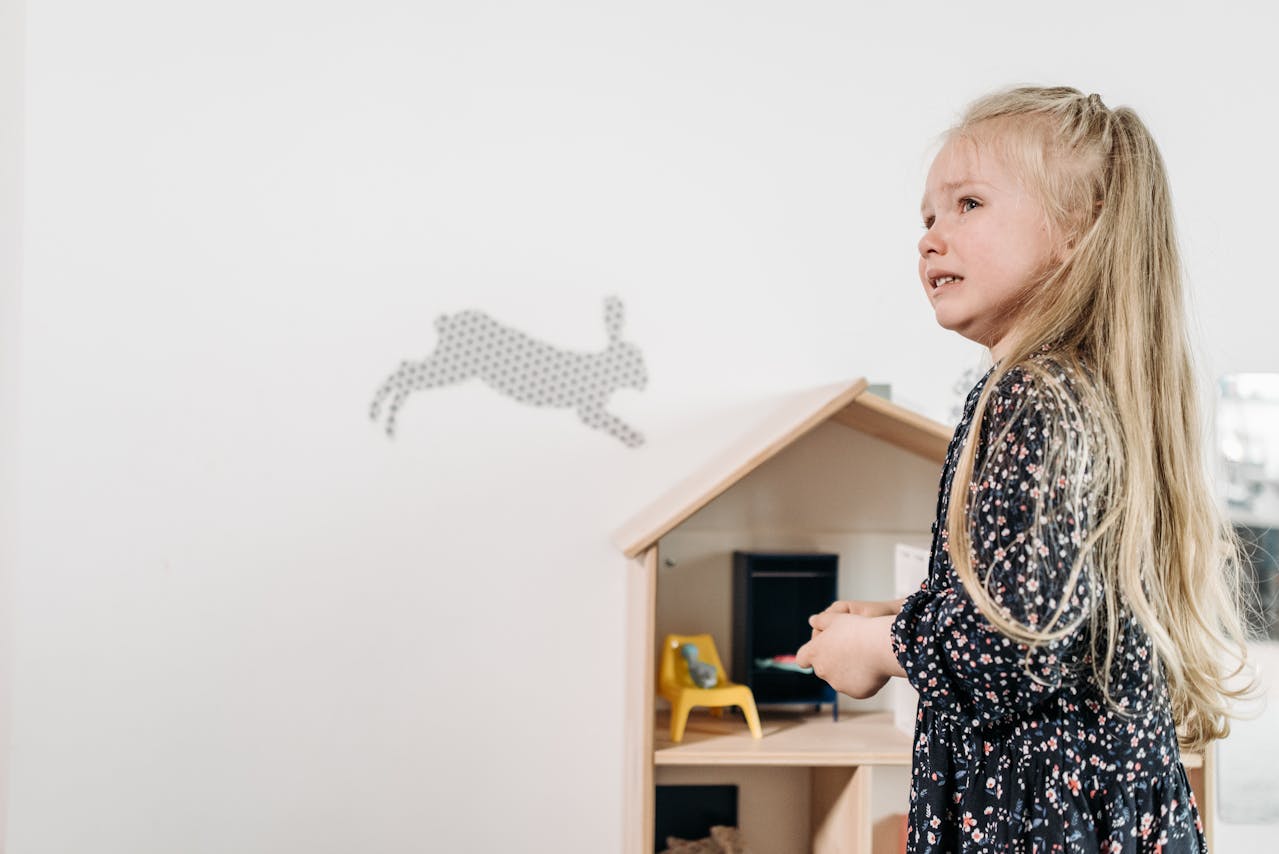Spanking children is a long-standing yet controversial parental tradition, learned from generation to generation and implemented in times of stress. Many people who were spanked as children figure they “turned out fine”. Parents who spank see an immediate change in behavior and assume the spanking was effective. These form the myth of the positive effects of being spanked as a child. However, decades of research all point to the same conclusion: Spanking is harmful to children and can cause long-term psychological and emotional damage.
Physical punishment in childhood has widely been left behind in modern parenting methods. From child psychology to neurology, the study of child development has revealed that spanking has the same negative impacts as other forms of violence and trauma for children, even when implemented by loving and well-meaning parents. We’re here to dispell the myth and reveal the truth of the so-called positive effects of being spanked as a child.
The Historical Perspective of Spanking in Parenting
Spanking has deep cultural roots in America and other parts of the world as a form of parental discipline. Many adults today were spanked as children, and in times of stress, parents often fall back on their deepest “parent tapes”, memories of their own rearing, to stop problem behavior. The prevalence of spanking is still surprisingly high, with as many as 1/3 of parents reporting to have spanked their children or used similar forms of physical discipline at least once.
There is a strong cultural tradition of spanking, but just because your parents did it does not mean that it is scientifically beneficial.
Traditional Beliefs Supporting Spanking
Many people believe that there are positive effects of being spanked as a child. They believe that because they were spanked, it is OK to spank their children. They may have learned the often-repeated phrase “Spare the rod, spoil the child” from religious relatives. They may even feel that there would be no way to curb bad behavior without punishment spanking.
However, there has been a generational difference in views on spanking, and over time, more parents leave spanking behind. Interestingly, those who were not spanked as children are unlikely to spank their own kids, showing strong roots in tradition and generational impressions.
How Parenting Styles Have Changed Over Time
The good news is that attitudes toward physical punishment in childhood has shifted in recent decades. Studies and personal experiences combine to show that spanking leads to avoidance, distrust, and future emotional problems. Children who were spanked tend to have more distant relationships with their parents as adults, and parents who seek generational progress often choose to leave spanking out of their child-rearing methods.
In fact, there are 62 countries that have banned childhood corporal punishment with scientific backing that it violates human rights and qualifies as child abuse.

Credit: Pexels
The Perceived “Positive Effects” of Spanking—A Closer Look
Why do people believe there are positive effects of being spanked as a child? There are several elements to examine. Many people are self-justifying, like an abuse victim rationalizing their abuse in order to feel OK day-to-day. Others are defending their family and cultural traditions out of deep instinctual loyalty to their tribe and way of life. But it’s also important to critically examine the reasons given and refute them with the latest research on child development, the effectiveness of corporal punishment of children as parental discipline,why is physical punishment bad, and the proven methods of helping young children stop misbehavior.
Claims of Improved Behavior and Respect
It is a commonly held belief that spanking leads to a better understanding of respect for authority and better-behaved children. Proponents of spanking often argue that spanking provides clear consequences for misbehavior and teaches good behavior.
This is the result of a skewed perspective. Research has shown that spanking teaches children to show respect or they will be hit. It also teaches them to hide misbehavior and avoid the spanker. Children may appear more respectful, but what they learn is fear and avoidance. These adverse childhood experiences also lead to long-term negative outcomes such as anxiety and distant relationships with parents who they learned to avoid.
Arguments of Quick Correction and Immediate Results
Another claim that there are positive effects of being spanked as a child is that spanking is a quick and effective way to stop undesirable behavior. This belief is tied to the idea that physical punishment produces immediate results, unlike other forms of discipline. It is true that spanking can shock a child so that they stop screaming, throwing, or whatever bad behavior is undesirable. However, there is a false correlation between “sudden good behavior” and returning to normal behavior after an outburst. Parental spanking can instead damage the parent-child relationship by punishing when a child needs comfort or care – which is often the source of acting out.
The Myth of “Harmless” Spanking
Lastly, there is a misconception that spanking is OK if done “mildly or “in moderation” and, therefore, won’t have long-term effects. Once again, science has proved this wrong. The American Academy of Pediatrics has found that spanking and any physical punishment in childhood – even “in moderation” – has the same neurological and psychological effects on a child (and their long-term adult life) as other forms of physical child abuse.

Credit: Pexels
The Real Effects of Childhood Spanking—Debunking the Myths
What do modern psychological and sociological studies say about spanking? The myth of the positive effects of being spanked as a child evaporate in the face of decades of data regarding the emotional and mental health problems of people who were spanked as children.
First, let’s clearly define spanking as the intentional infliction of pain as a form of discipline. It’s not “just as swat on the butt”, it is hitting a child in hopes that they will learn from the pain. Studies have found that spanking causes similar long-term damage to other, less widely accepted, experiences in which parents intentionally inflict pain on their children. In any other context, we would call this physical abuse.
What effects does spanking have on children, and what long-term effects does it have on adults when those children grow up?
Increased Aggression and Behavioral Problems
Spanking increases aggression and behavioral problems. Children who are spanked are shown aggression and learn the lesson that “might makes right”. They are also less likely to receive positive emotional modeling to handle their feelings in a healthy way.
Cause-and-effect research has revealed that non-aggressive children are more likely to show signs of aggression after being spanked and behavior problems get worse if naturally aggressive children are spanked as a form of discipline.
Spanking models aggression as a problem-solving method, teaching children antisocial behavior and externalizing behavior while denying them the parenting that could help improve their cognitive ability for emotional self-control.

Credit: Pexels
Impact on Mental Health and Emotional Development
When exploring why is physical punishment bad, consider that spanking is also linked to higher rates of anxiety, depression, and low self-esteem for children starting as early as pre-school and extending into adulthood. Spanking can damage a child’s emotional bond with their parents as well, and children who were spanked are more likely to have emotional problems, trust issues, and a more distant relationship with their parents in adulthood.
There have been findings that spanking affects a child’s brain development regarding stress, anxiety, and trust and leads to a clear pattern of mental health problems.
Long-Term Consequences into Adulthood
While many people say they are fine after being spanked, furthering the myth of the positive effects of being spanked as a child, psychological patterns prove otherwise. Research reveals that there is a pattern of long-term negative effects for people who are spanked as children. These include difficulty gorming relationships, trust issues, and lack of self-respect that can lead to health problems. Maltreatment in early life can have severe long-term consequences while parents are looking for a short-term solution to bad behavior.
Alternatives to Physical Punishment: Effective Discipline Strategies
The good news is that science has also provided better parenting strategies to replace spanking. Parenting is stressful, and parents often mimic their own rearing when their child has achieved peak stress. But it is possible to leave spanking behind and learn a more effective discipline solution. The leading methods are natural consequences, positive reinforcement, and communication. These may seem soft compared to spanking (they are) but if your goal is a child who can make good behavioral decisions and leave behind bad behavior in favor of self-control, then these are the methods with proven results.
Any parent looking to change behavior for the right reasons will find these methods far more effective and rewarding than spanking.
1. Natural Consequences
Natural consequences involve allowing your child to learn about the downsides of bad behavior without physical punishment. For example, if your child throws their lunch, they may have to remain hungry until dinner. If your child dumps apple sauce on themselves, they may have to remain sticky until they get home to wash and change. If they run and fall, that natural lesson is far more effective in terms of child development than a spanking.
While parents should, of course, protect children from serious harm, a few natural consequences can go a long way, and children will learn why good behavior is the best answer, and your advice/rules are for their own good. Not just because you said so.
2. Positive Reinforcement and Behavioral Modeling
Behavioral modeling is showing your child the right way to do things, both directly and indirectly. Positive reinforcement is encouraging and rewarding your child for good behavior and doing things the right way. Rewarding good behavior and modeling appropriate actions can guide a child toward desired behaviors and is more effective for reinforcing good behavior than swift and painful punishment.
Positive reinforcement allows children to seek rewarding outcomes by choosing desirable behaviors. You can also avoid showing your child aggressive behavior modeling (such as spanking) so they learn only positive methods to handle their problems.
3. Communication and Conflict Resolution
Lastly, it’s important to help children understand problems and how to resolve conflicts without violence. Babies scream, and toddlers hit. But when given words to express themselves, they are more likely to ask for help or seek solutions. Communication can teach your child to ask for help instead of throwing a tantrum. Teaching conflict resolution can show them how to resolve problems peacefully and productively.

Credit: Pexels
Addressing Common Defenses of Spanking
Finally, let’s talk about why spanking is still a defended parenting method. Many people still defend spanking, often citing their own childhood experiences. These arguments should be approached with sympathy, understanding that the damage caused by spanking has already occurred. No one wants to think of themselves as a victim or view their parents as abusers if this doesn’t fit into their worldview. The instinct to defend tradition is also inherently strong in the human mind. However, generational progress is always a worthy pursuit.
“I Was Spanked and Turned Out Fine”—Understanding Survivorship Bias
What do you say to people who defend spanking because they were spanked? Look at it from the perspective of “Survivorship Bias”, a scientific fallacy that focuses only on success stories and disregards unseen cases or effects. Parents may not associate their depression or distant relationship with a parent with having been spanked. They are also not considering other cases where children who were spanked turned out worse than they did.
These parents have a false sense of the positive effects of being spanked as a child, often falsely attributing their own successes with their parent’s claim that spanking was an effective parenting technique. It’s hard to break someone out of their own perception of themselves and “what worked for them” or “what got them here today” Especially if that means acknowledging psychological problems that may still be untreated like depression, anxiety, or trust issues which are often considered secret and shameful to discuss.
Breaking the Cycle: Parenting Beyond Tradition
Fortunately, many parents do realize that spanking was a negative influence and that they did not experience their parent’s claimed positive effects of being spanked as a child. These parents make the conscious choice to achieve generational progress by breaking the cycle of physical punishment and learning better parenting methods.
Spanking is Becoming a Thing of the Past
Many people defend spanking as a still-valid parenting method to achieve quick behavioral results, teach respect, or discourage bad behavior. However, the idea that there are positive effects of being spanked as a child is a myth long disproven by decades of research on child development and the long-term consequences of physical punishment in child-rearing.
While spanking may have been normalized in the past, it’s time to embrace more effective non-violent discipline methods that teach children not just what to do, but why and how to choose good behavior. Parents ready to achieve generational progress and leave spanking behind can seek education on alternative discipline, positive modeling, natural consequences, and how to teach children conflict resolution. Society continues to advocate for children’s rights, and each parent who chooses the new way plays an important part in that movement while also setting your child up for long-term emotional and psychological success.
Now that you know that there are no positive effects of being spanked as a child, enroll in our online class today to learn positive, research-backed approaches that nurture your child’s development and strengthen your bond. Don’t use spanking, nor other forms of punishment, instead find out strategies to parent a balanced kid.
Additionally, if you have more questions about child behaviors and these so-called positive effects of being spanked as a child, feel free to ask Sophie, our AI parenting expert who is available to assist you at any time.
References
American Psychological Association & National Association for the Education of Young Children. (2001). Violence Prevention for Families of Young Children [Brochure]. American Psychological Association
T. Gershoff, Grogan-Kaylor (2021). Spanking and Child Outcomes: Old Controversies and New Meta-Analyses. 10.1037/fam0000191
Glicksman, E. (2019). Physical discipline is harmful and ineffective. Monitor on Psychology, 50(5). https://www.apa.org/about/policy/physical-discipline.pdf
Regalado, M., Sareen, H., Inkelas, M., Wissow, L. S., & Halfon, N. (2004). Parents’ discipline of young children: results from the National Survey of Early Childhood Health. Pediatrics, 113(6 Suppl), 1952–1958. https://doi.org/10.1542/peds.113.6.S1.1952









